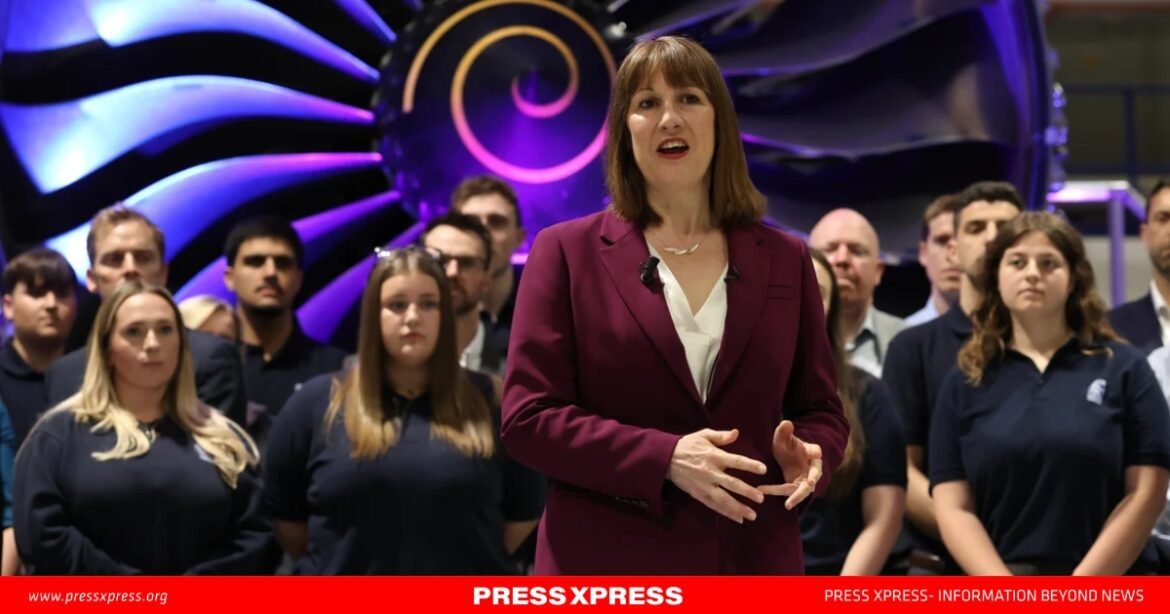

As the UK prepares to host the much-anticipated UK-EU summit on May 19, Chancellor Rachel Reeves has described the meeting as a meaningful step toward a deeper, more enduring partnership with the European Union. Far from being a one-off event, Reeves emphasized that the summit will mark the beginning of a longer journey aimed at rebuilding trust and expanding cooperation across multiple fronts.
Moving Beyond Past Brexit Battles
Since the UK’s departure from the EU, defining a practical and mutually beneficial relationship has been a major challenge. The Labour government, led by Keir Starmer, is signaling a shift away from the ideological divides that dominated previous Brexit negotiations. Speaking to The Guardian, Reeves said the government sees “a lot of room for improvement” in how the UK trades with the EU, while maintaining clear red lines against rejoining the single market, customs union, or free movement.
“We think that because of the trust we built, we can get a better deal. The European Union have understood from the beginning those red lines,” Reeves said, underscoring the government’s intention to respect Brexit’s core outcomes while pursuing enhanced collaboration.
Unlike Keir Starmer’s more cautious comments last week, Reeves was unequivocal about the government’s ambition for a “journey” of closer ties. “This isn’t a one-off. There will be things that we achieve, some concrete outcomes on Monday, but also a step towards where we want to go next between our countries,” she added.
Political Sensitivities and Negotiation Challenges
The summit unfolds amid a complex political landscape. Nigel Farage’s Reform UK party has surged in recent local elections, raising the stakes around any perceived closeness with Brussels. The UK government is walking a tightrope, balancing domestic political pressures with the economic realities of maintaining strong EU ties.
Negotiations remain tense on key issues, particularly fishing rights and tuition fees for EU students. While a defence and security cooperation agreement is expected, it will likely fall short of granting the UK access to the EU’s €150 billion European Defence Fund. Instead, the deal could open the door for UK companies to bid for funds through the Security Action for Europe loan facility, marking a cautious but significant step.
Trade, Economy, and Strategic Interests
Trade relations remain central to the UK-EU dialogue. Despite Brexit, the EU remains the UK’s largest trading partner, accounting for 41% of UK goods exports — more than the combined exports to the US, India, and the Indo-Pacific region.
Reeves highlighted the tangible benefits from recent trade deals with other global partners. For instance:
- Rolls-Royce now enjoys zero tariffs on engine exports to the US.
- Jaguar Land Rover has resumed exports without disruption, thanks to new agreements.
“These deals are a result of hard work and putting the country first,” Reeves said, contrasting the current approach with previous governments that, in her view, prioritized party ideology over economic interests.
Internal Party Dynamics and Welfare Reforms
While focusing on external relations, the Labour government also faces challenges at home. A growing rebellion among MPs has emerged over welfare reforms, particularly cuts to disability benefits. Reeves acknowledged the concerns but defended the measures, emphasizing a commitment to lifting people, especially children out of poverty.
“I listen to my colleagues and hear their concerns,” she said. “But there’s not a single Labour MP I’ve met who thinks the system we inherited is working.”
Opposition and Criticism
The government’s approach has drawn criticism from Conservatives and Reform UK alike. Reeves condemned attacks aimed at undermining international trade efforts, warning against isolationism.
“If you want to pull up the drawbridge and withdraw from the rest of the world, you’re not going to make people better off, and you’re going to be selling Britain short,” she stated. ”Look at the deal we secured with the US — massive opportunities for steel, car exports, and aerospace. That’s what I want to secure with Europe as well.”
Looking Ahead: A Foundation for Future Cooperation
Monday’s summit is widely regarded as a foundational step rather than a conclusive agreement. With ongoing issues to resolve, Reeves stressed the importance of rebuilding trust and viewing the process as a long-term journey.
“The negotiations won’t end on Monday,” said Defence Secretary John Healey, emphasizing that while the summit is significant, it is only the beginning.
UK-EU Relations — Trade, Politics, and Cooperation
UK Export Distribution (2024 Data)
- EU: 41%
- US: 25%
- India: 15%
- Other regions (including Indo-Pacific): 19%
Key Summit Focus Areas
- Defence & Security Cooperation
- Trade & Regulatory Alignment
- Youth Mobility & Education
Political Landscape
- Reform UK Local Election Vote Share Growth: +15% (YoY)
- Labour Party Internal Dissent: Percentage of MPs opposing welfare reforms
Trade Deal Benefits
- Rolls-Royce: Zero tariffs on US exports
- Jaguar Land Rover: Resumption of exports post-deal
- Potential future EU deals: Reduced trade barriers through Mutual Recognition Agreements
UK Government’s Strategic Priorities
- Stability & Economic Growth
- Global Engagement
- Social Welfare Reform

The UK-EU summit represents a cautious but important effort to move beyond Brexit’s challenges and lay groundwork for a pragmatic, future-oriented partnership. With a complex political backdrop at home and abroad, the outcomes on Monday will set the tone for the next phase of UK-European relations, balanceng ambition with the realities of political sensitivities and economic interdependence.


